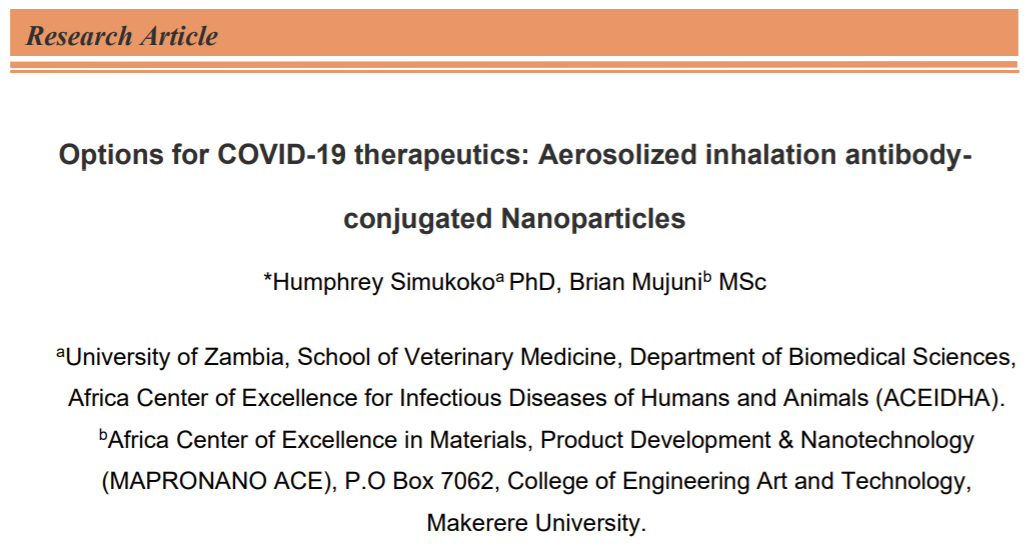
Abbreviated Names:
Simukoko H., Mujuni, B.
* Address correspondence to:
Dr. Humphrey Simukoko, University of Zambia, School of Veterinary Medicine, Department of Biomedical Sciences, P.O. Box 32379, Lusaka, Zambia. Postal code: 10101
Tel/Fax: +260-211-293727
Mobile: +260-975732243
Email: h.simukoko@unza.zm
Article type: Research Article
Received: July 11, 2020
Revised: July 20, 2020
Accepted: August 4, 2020
Citation: Simukoko H. and Mujuni, B.; Options for covid-19 therapeutics: aerosolized inhalation antibody-conjugated nanoparticles, Biotechnology Kiosk, Vol 2, Issue 8, PP: 4-16 (2020); DOI: https://doi.org/10.37756/bk.20.2.8.1
Abstract
The world is currently faced with a very serious crisis to deal with the Severe Acute Respiratory Syndrome Coronavirus 2 (SARS-CoV-2 or Covid-19) pandemic which started in Wuhan, China in December 2019 and has since spread throughout the world, wreaking havoc in many countries. Several efforts are being made to control the spread of the disease around the world and to find a cure or vaccine. As researchers frantically endeavor to identify remedies for covid19, there is the need to identify therapies that offer the quickest, safest actions and remedies that are relatively cheap. We propose the use of aerosolized inhalation antibody conjugated nanoparticles for the treatment of covid-19. It is hypothesized in this proposal that the conjugation of nanoparticles with antibodies and delivering the antibody-nanoparticle conjugate as an aerosol via the respiratory tract would provide the quickest and possibly more efficient and relatively cheap remedy against covid-19. The advantage of the inhalation route for delivering antibody conjugated nanoparticles is that since the medication is delivered directly to the affected site, higher doses will be delivered to the site with reduced systemic toxicity and reduced adverse effects on gaseous exchange. Our hypothesis is based on the current knowledge and observations in the areas of monoclonal antibody technology, advances in nanotechnology and Nano medicine as well as advances in inhalation therapeutics.
Key Words:
Pandemic, Angiotensin-Converting Enzyme 2 (ACE2) receptor, Respiratory Epithelium, Virus, Nano medicine.